While reading old newspaper articles in the course of doing some tedious research it dawned on me the papers were from April 1911. Easily distracted from my project, I wondered what else was going on one hundred years ago. In some ways it seems so distant, but in others, not much different than April 2011: labor strife, foreign revolutions with implications for the US, local food laws, energy related issues, criticism of journalism, political corruption (particularly in Illinois), and, it being April, Baseball! A sampling:
- Puyi, the Last Emperor of China was proclaimed Supreme Commander of the army at age 2. Bertolucci made an epic film about his life in 1987.
- Tsinghua University, now a major research institution, opened in Beijing.
 The French Senate voted to end territorial limitations on where champagne could be produced and still be called champagne. Wine-growers in the region rioted, burning establishments and dumping thousands of gallons of champagne. Order was quickly restored. Domain of origin laws, now rife in the EU, continue to be a drag on industrial agricultural efficiency, for which some of us are thankful.
The French Senate voted to end territorial limitations on where champagne could be produced and still be called champagne. Wine-growers in the region rioted, burning establishments and dumping thousands of gallons of champagne. Order was quickly restored. Domain of origin laws, now rife in the EU, continue to be a drag on industrial agricultural efficiency, for which some of us are thankful.
- Portugal approved women’s suffrage, and disestablished the Roman Church as the state religion. The US would get around to it in 1920–the suffrage part, that is. The other one could become murky.
- Elections, supervised by the United States, were held for the National Assembly of Nicaragua. With the assistance of the Army, General Luis Mena, the Minister of War, secured the election of many of his followers to the new legislature. It only gets uglier.
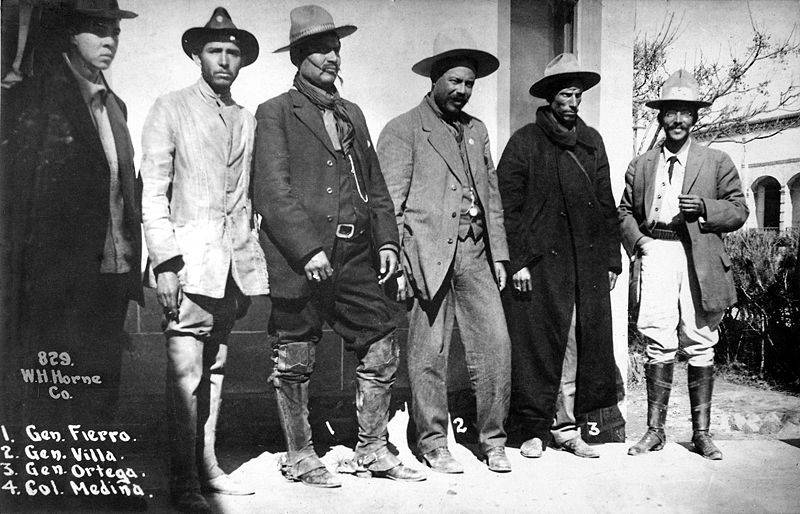
- Pancho Villa led an army of 2,500 Mexican rebels that takes Ciudad Juarez. A pillar of the Mexican Revolution, was replacing feudal relations with the ejido system of collective land ownership, a cornerstone of peasant rights.. Under pressure from the US and the World Bank in establishing NAFTA, Mexico eliminated the constitutional right to ejidos in 1991, citing the “low productivity” of communally owned land. Investors were eager to buy up land and privatize the landholdings. A surge in unauthorized immigration of impoverished Mexicans to the US commenced.
- President Taft ordered the 9th Cavalry (The Buffalo Soldiers) out of San Antonio, where they had been sent to guard the border with Mexico. The all-African-American regiment’s northern-born soldiers had defied local segregation laws, and two white streetcar conductors had been beaten after insisting the soldiers move to the colored section of the cars. The order was reversed two days later after complaints from mayors of cities where the troops were to be moved, including Brownsville, Laredo and Del Rio.
- Baltimore enacted an ordinance prohibiting African-Americans from moving into or establishing businesses in white neighborhoods.
- On Easter Sunday, an explosion killed 23 coal miners in Elk Garden, WV. A mine fire near Scranton, PA, killed 73 coal miners, many of them boys. An explosion at the the Pratt Consolidated Coal mine near Littleton, AL, killed 128 coal miners; all but five were African-Americans convicted of minor crimes and sentenced to hard labor. And that’s just April 1911. Coal isn’t used so much anymore for transportation, heating and industry. But how will we charge all our new clean and efficient electric cars?
- The co-owners of the Triangle Shirtwaist Company were indicted for manslaughter for the fire that killed 146 young women garment workers in March. Probable cause was the door bolted to prevent the possible theft of scraps of cloth. They were acquitted, and later settled civil suits against them with payment of $75 apiece to the families of each victim. On Wednesday, April 5th, 120,000 employees took the day off and marched in the rain along Fifth Avenue in a memorial service. The procession lasted for three hours. Fortunately, this kind of union thuggery is being done away with by the current crop of Republican governors dedicated to higher efficiency. Cartoon from the ILGWU paper of the time:
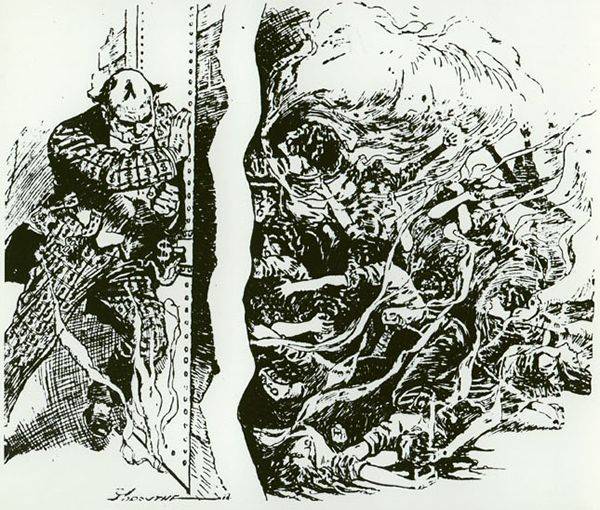
- The record was set for the highest number of immigrants — 11,745 — being processed in a single day through the U.S. Bureau of Immigration station at Ellis Island. In the immortal words of utility baron Samuel Insull: “My experience is that the greatest aid to efficiency of labor is a long line of men waiting at the gate.”
- James McNamara, Secretary-Treasurer of the International Association of Structural Iron Workers, and Oscar McNanigal, among those indicted for the Los Angeles Times bombing that killed 21 in October, were arrested in Detroit. James was carrying a briefcase filled with dynamite when caught. His brother John was nabbed ten days later in Indianapolis.
- Oswald Garrison Villard of the NY Post addressed an assembly of the University of Illinois College of Literature and Arts on “The Problem of Independent Journalism.” Villard, the grandson of abolitionist William Lloyd Garrison, was an anti-imperialist, civil rights supporter who became a pillar of the old right and the America First Committee. Interesting career.
- Victor L. Berger of Wisconsin, the first Socialist Party of America member to serve in Congress, was seated and soon introduced a resolution to amend Article I of the United States Constitution in order to abolish the United States Senate. The New York Times noted, “The idea that the Senate would concur in passing this joint resolution caused a merry laugh wherever it was discussed.” It’s still a good idea.
- The U.S. House of Representatives passed the bill for a constitutional amendment requiring direct election of U.S. Senators, 296-1
- The impetus for that vote was why much of the nation’s press was in Springfield for hearings on the Lorimer scandal. William Lorimer, the “Blond Boss” of the Chicago Republican Machine, was elected U.S. Senator after several Illinois State Legislators were bribed. The bribe money came from what was known as the “Jackpot Fund.” That Lorimer’s friends had made the bribes was clear, but who provided the money and for what favors was still being sorted out. Much of it apparently came from lumber interests wanting a high tariff. Edward Hines (Hines Lumber), in cahoots with the Weyerhauser family and other lumber kings, later boasted he had put Lorimer over and said “it cost us a lot of money, but he is well worth all of it to us.” Who’s he look like? The eyes say Boehner.
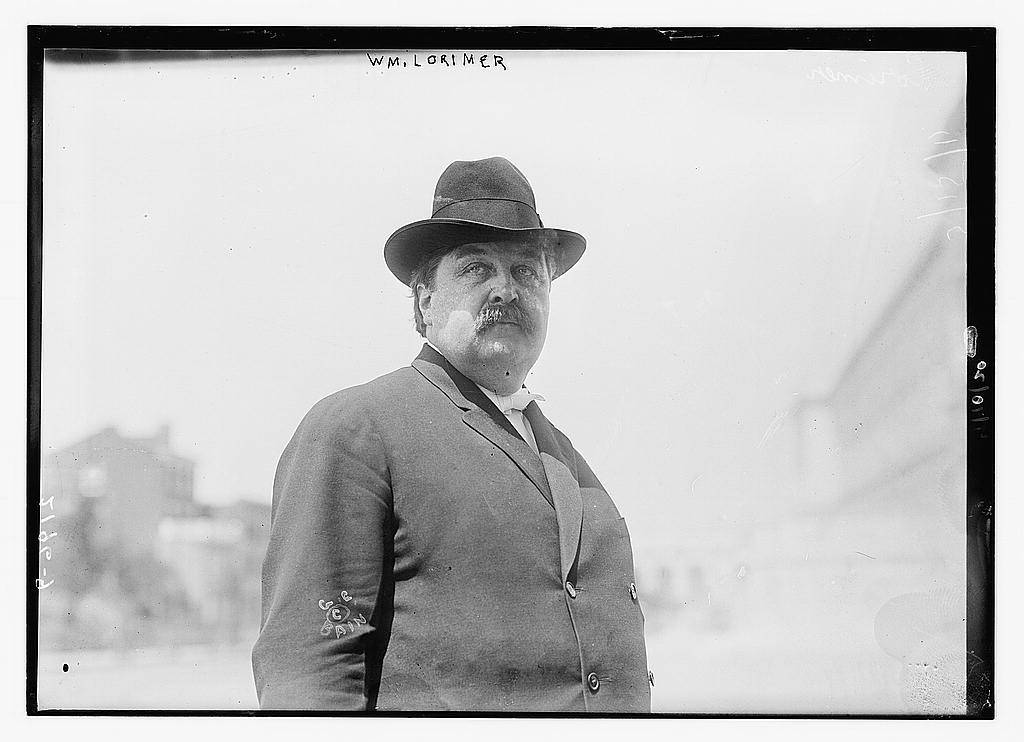
 The first public performance of the Irving Berlin tune “Alexander’s Ragtime Band” was given at the Big Easter Vaudeville Carnival at the American Music Hall in Chicago. Ragtime music was at it’s peak, bouncing against and across the color line, foreshadowing the 20’s. and the intensified blacking up of popular culture. “It’s a Bear!” meant “very exciting.”
The first public performance of the Irving Berlin tune “Alexander’s Ragtime Band” was given at the Big Easter Vaudeville Carnival at the American Music Hall in Chicago. Ragtime music was at it’s peak, bouncing against and across the color line, foreshadowing the 20’s. and the intensified blacking up of popular culture. “It’s a Bear!” meant “very exciting.”
- Dutch physicist Heike Kamerlingh Onnes found that the electrical resistance of mercury disappears at -268.85°C, thus discovering superconductivity.
- The first radio journal, The Marconigraph, was published.
- Minnesota abolished the death penalty.
- The season opener between the Phillies and the Giants at the Polo Grounds was the shortest major league baseball game ever, the Phillies winning 2-0 in 50 minutes. The next day, after the Phillies and Giants played an 18 inning game, the Polo Grounds burned to the ground.
 Big Jeff Pfeffer (b. Champaign 1882) began his final year as a big league pitcher with the last place Boston Rustlers (not yet Braves), after being traded by the Cubs. In 1911 he was 7-5 with a 4.73 ERA. In his six years career he was 31-39. He’s buried in St. Mary’s Cemetery, out behind the Assembly Hall. Handsome fellow, eh?
Big Jeff Pfeffer (b. Champaign 1882) began his final year as a big league pitcher with the last place Boston Rustlers (not yet Braves), after being traded by the Cubs. In 1911 he was 7-5 with a 4.73 ERA. In his six years career he was 31-39. He’s buried in St. Mary’s Cemetery, out behind the Assembly Hall. Handsome fellow, eh?
 Addie Joss (left), Hall of Fame pitcher for the Cleveland Naps, 1.88 lifetime ERA, died of tuberculosis at 31. Photo of him at age 30 — hard life being a pitcher then apparently.
Addie Joss (left), Hall of Fame pitcher for the Cleveland Naps, 1.88 lifetime ERA, died of tuberculosis at 31. Photo of him at age 30 — hard life being a pitcher then apparently.
- Mordecai Brown, aka Miner Brown (he had been an Indiana coal miner), or most commonly, Three Finger Brown (due to a farm machinery accident), began one of his best seasons, 21-11 (plus 13 saves attributed later), with the Cubs. Despite having Brown and National League MVP Frank Schulte (.300 21 HR 107 RBI), the Cubs would finish 7.5 games behind the Giants. Cubs fans had no idea of how long this coming up short would go on.
 When the White Sox moved into Comiskey Park, Chicago American Giants player-manager Andrew “Rube” Foster partnered with Charlie Comiskey’s son-in-law to use the vacated Sox park at 39th and Wentworth as the home field for his Giants. The American Giants took the western black baseball championship for four years and from 1911 until the mid-1930s were the dominant team in black baseball.
When the White Sox moved into Comiskey Park, Chicago American Giants player-manager Andrew “Rube” Foster partnered with Charlie Comiskey’s son-in-law to use the vacated Sox park at 39th and Wentworth as the home field for his Giants. The American Giants took the western black baseball championship for four years and from 1911 until the mid-1930s were the dominant team in black baseball.








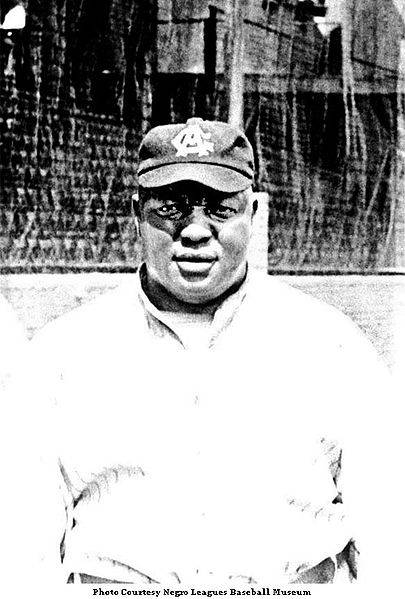
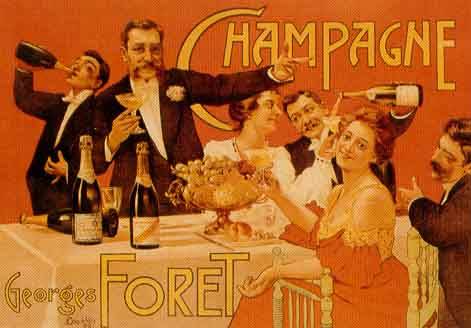 The French Senate voted to end territorial limitations on where champagne could be produced and still be called champagne. Wine-growers in the region rioted, burning establishments and dumping thousands of gallons of champagne. Order was quickly restored. Domain of origin laws, now rife in the EU, continue to be a drag on industrial agricultural efficiency, for which some of us are thankful.
The French Senate voted to end territorial limitations on where champagne could be produced and still be called champagne. Wine-growers in the region rioted, burning establishments and dumping thousands of gallons of champagne. Order was quickly restored. Domain of origin laws, now rife in the EU, continue to be a drag on industrial agricultural efficiency, for which some of us are thankful.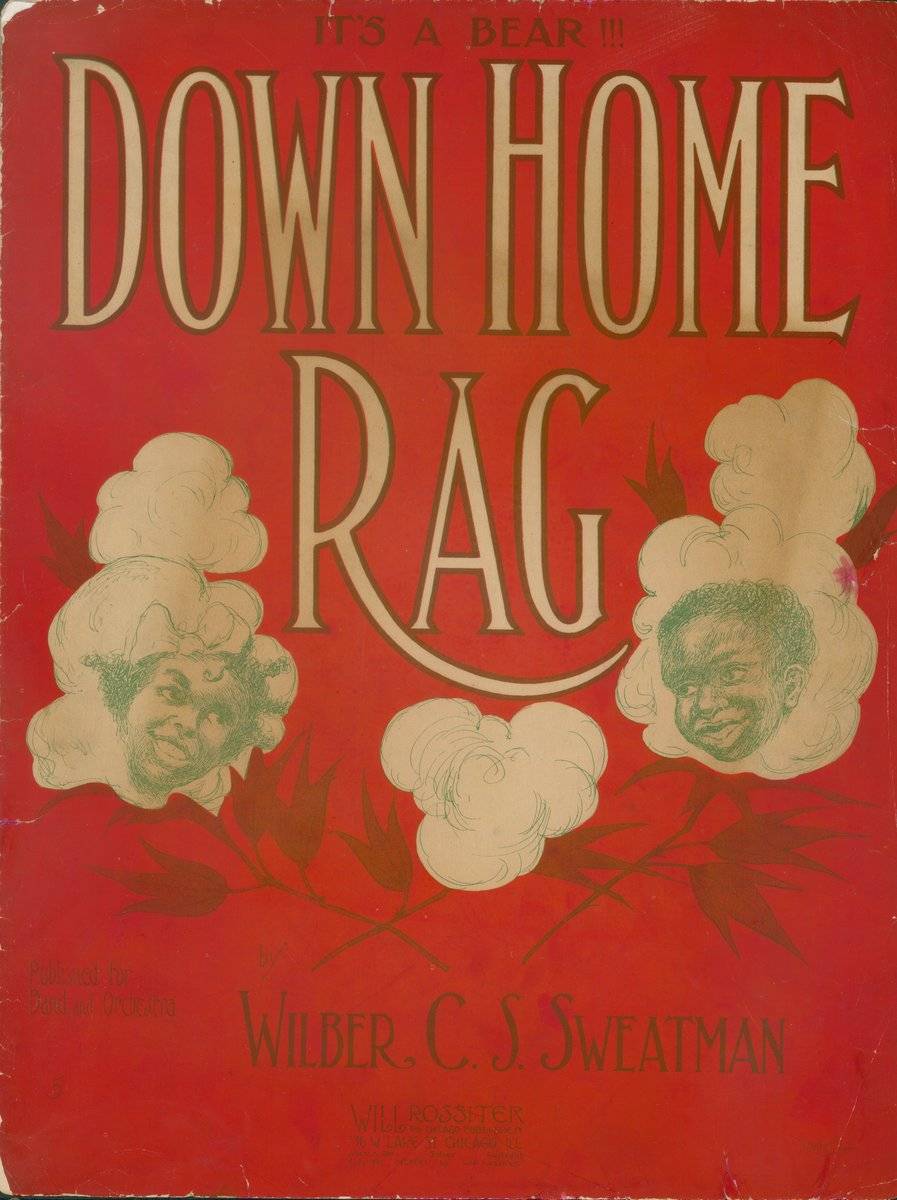 The first public performance of the Irving Berlin tune “Alexander’s Ragtime Band” was given at the Big Easter Vaudeville Carnival at the American Music Hall in Chicago. Ragtime music was at it’s peak, bouncing against and across the color line, foreshadowing the 20’s. and the
The first public performance of the Irving Berlin tune “Alexander’s Ragtime Band” was given at the Big Easter Vaudeville Carnival at the American Music Hall in Chicago. Ragtime music was at it’s peak, bouncing against and across the color line, foreshadowing the 20’s. and the  Big Jeff Pfeffer (b. Champaign 1882) began his final year as a big league pitcher with the last place Boston Rustlers (not yet Braves), after being traded by the Cubs. In 1911 he was 7-5 with a 4.73 ERA. In his six years career he was 31-39. He’s buried in St. Mary’s Cemetery, out behind the Assembly Hall. Handsome fellow, eh?
Big Jeff Pfeffer (b. Champaign 1882) began his final year as a big league pitcher with the last place Boston Rustlers (not yet Braves), after being traded by the Cubs. In 1911 he was 7-5 with a 4.73 ERA. In his six years career he was 31-39. He’s buried in St. Mary’s Cemetery, out behind the Assembly Hall. Handsome fellow, eh?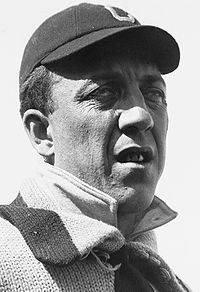 Addie Joss (left), Hall of Fame pitcher for the Cleveland Naps, 1.88 lifetime ERA, died of tuberculosis at 31. Photo of him at age 30 — hard life being a pitcher then apparently.
Addie Joss (left), Hall of Fame pitcher for the Cleveland Naps, 1.88 lifetime ERA, died of tuberculosis at 31. Photo of him at age 30 — hard life being a pitcher then apparently. When the White Sox moved into Comiskey Park, Chicago American Giants player-manager
When the White Sox moved into Comiskey Park, Chicago American Giants player-manager